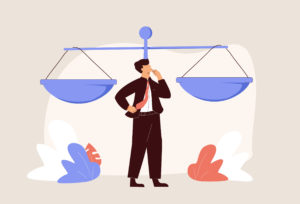Shareholders Pleased as Musk Decides Against Taking Tesla Private

The shareholders are pleased that Elon Musk decided against taking tesla private in what was sure to be a controversial move. Not wholly unlike several bold and surprising moves the worlds most famous entrepreneur has done in recent years. Tesla’s CEO Elon Musk recently created quite a stir after suggesting he was considering taking his car company private. Things got even more serious last week when Musk hired Morgan Stanley to advise him regarding such a bid.
However, news broke early Saturday morning that Musk had abandoned the idea. Although he said there was more than enough funding to do it, ultimately he decided against it because current shareholders asked him not to.
Investors surely had their reasons for wanting the company to stay public, including a very large tax bill if Tesla had gone private. Musk had said his idea would’ve been to allow current shareholders to remain invested if they wanted, via a special fund. He also said he would’ve offered $420 a share to those who wanted to sell.
That being said, if current shareholders would’ve stayed invested they would have had to sell their current shares and then purchase shares in the special fund. So what would the tax implications had been if that had happened? Any investors that made a profit from selling those shares would’ve been taxed no matter what they did with the money.
For investors that got in at the beginning a hefty tax bill would have awaited them. Consider that when the company first went public it opened at a price of $19 a share. The stock has since climbed to a current rate in the neighborhood of $340 a share. For someone that originally invested $10,000, that would now be worth close to $179,000 at the current share price. With the top capital gains tax rate at 20 percent, that’s a $33,800 tax bill.
But shareholders are breathing a sigh of relief knowing they won’t have to pay that price, at least for now.
About Tesla (from Wikipedia) Founded in July 2003 by Martin Eberhard and Marc Tarpenning, the company’s name is a tribute to inventor and electrical engineer Nikola Tesla. In February 2004, via a $6.5 million investment, X.com co-founder Elon became the largest shareholder of the company and its chairman. He has served as CEO since 2008.
According to Musk, the purpose of Tesla is to help expedite the move to sustainable transport and energy, obtained through electric vehicles and solar power. Began production of its first car model, the Roadster sports car, in 2009. This was followed by the Model S sedan in 2012, the X SUV in 2015, the Model 3 sedan in 2017, and the Y crossover in 2020.
The Model 3 is the all-time best-selling plug-in electric car worldwide, and, in June 2021, became the first electric car to sell 1 million units globally. Tesla’s global sales were 936,222 cars in 2021, a 87% increase over the previous year, and cumulative sales totaled 2.3 million cars at the end of 2021. In October 2021, Tesla’s market capitalization reached $1 trillion, the sixth company to do so in U.S. history.
We hope you found this article about “Shareholders Pleased as Musk Decides Against Taking Tesla Private” helpful. If you have questions or need expert tax or family office advice that’s refreshingly objective (we never sell investments), please contact us or visit our Family office page or our website at www.GROCO.com. Unfortunately, we no longer give advice to other tax professionals gratis.

To receive our free newsletter, contact us here.
Subscribe to our YouTube Channel for more updates.
Considerately yours,
GROCO, GROCO Tax, GROCO Technology, GROCO Advisory Services, GROCO Consulting Services, GROCO Relationship Services, GROCO Consulting/Advisory Services, GROCO Family Office Wealth, and GROCO Family Office Services.

Alan L. Olsen, CPA, Wikipedia Bio

Proud sponsor of the AD Show.

Does Your Company Need a Fairness Opinion?
Does Your Company Need a Fairness Opinion? Although not required by statute or regulation, fairness opinions have become an important component of the board of directors and executives deliberation process as they seek to satisfy their fiduciary duties to shareholders and act with due care in an informed manner. Fairness opinions are prepared for and…
Tax Record Retention Guide
Storing tax records: How long is long enough? Tax Record Retention April 15 has come and gone and another year of tax forms and shoeboxes full of receipts is behind us. But what should be done with those documents after your check or refund request is in the mail? Federal law requires you to maintain…
3 Reasons Why Owning a Commercial Property May Make You More Money in Real Estate Investment
Making a Commercial Property Investment If you ever have been a landlord for residential property, I am sure that you get complaints from tenants about leaking roofs in the middle of the night. But what keeps most people back from investing in commercial real estate is the fear of the unknown since not many of…
Sec 1045: Small Business Stock Rollover of Gain
The Beauty of Section 1045 Enacted as part of the Taxpayer Relief Act of 1997 (effective for sales after August 5, 1997), a taxpayer other than a corporation may elect to roll over capital gains from the sale of qualified small business stock held for more than six months if another small business stock is…



